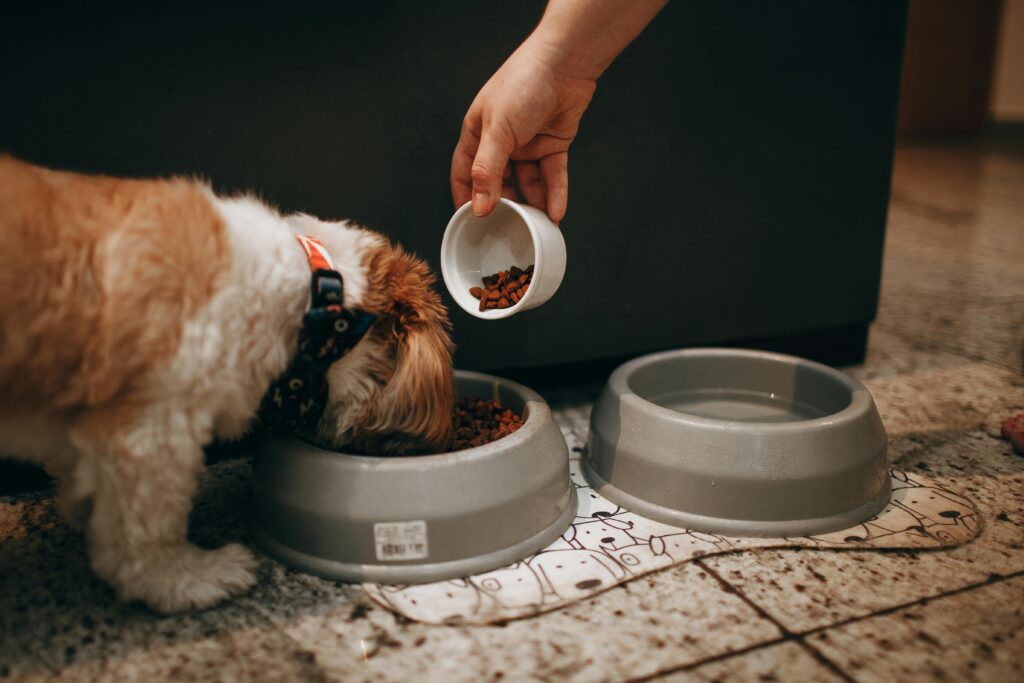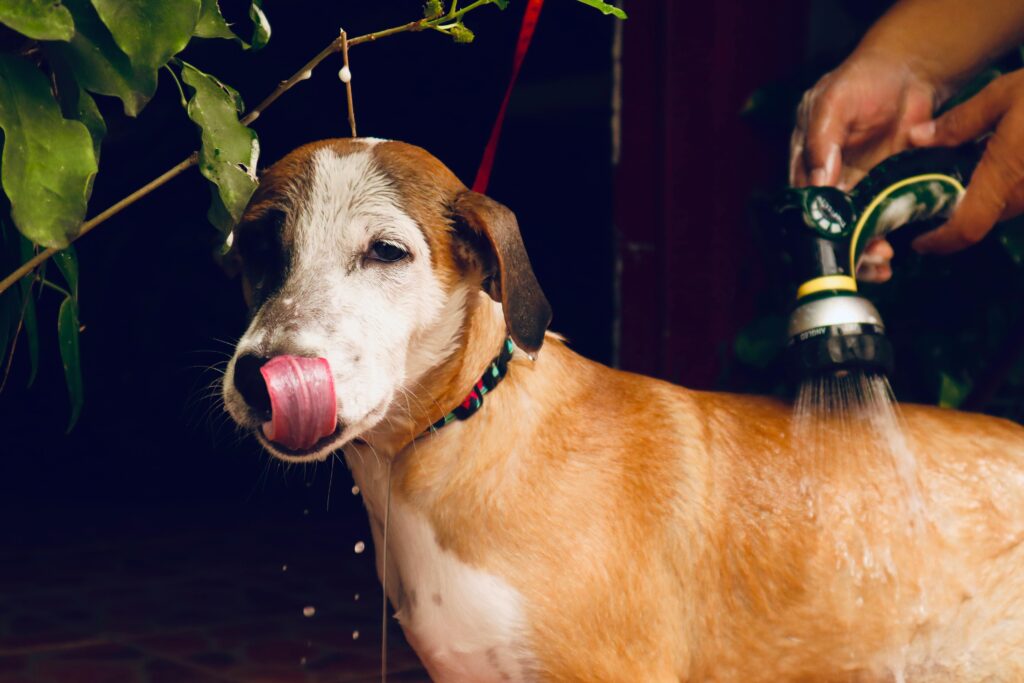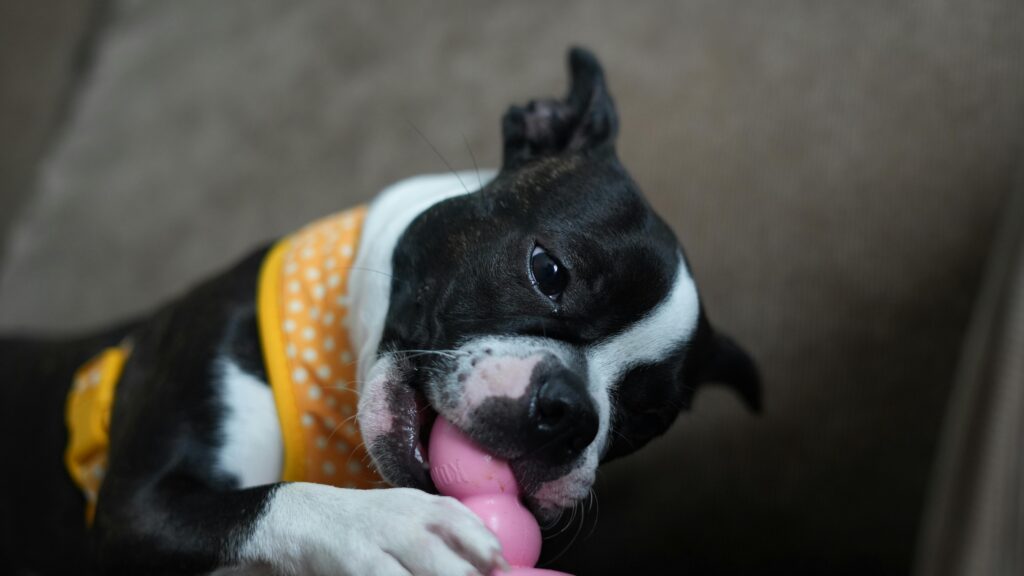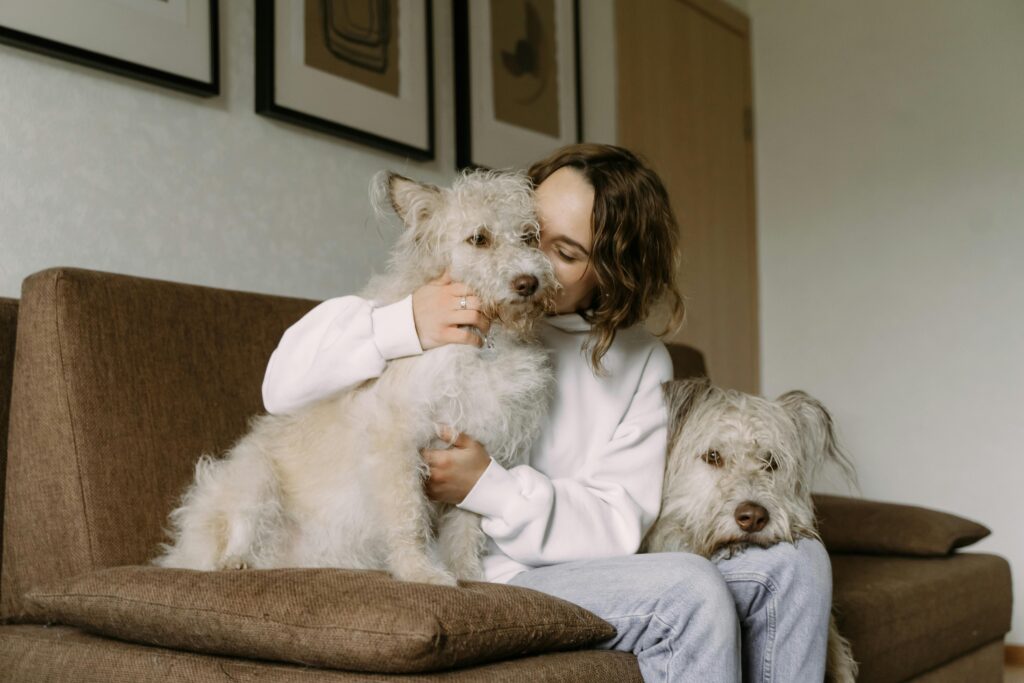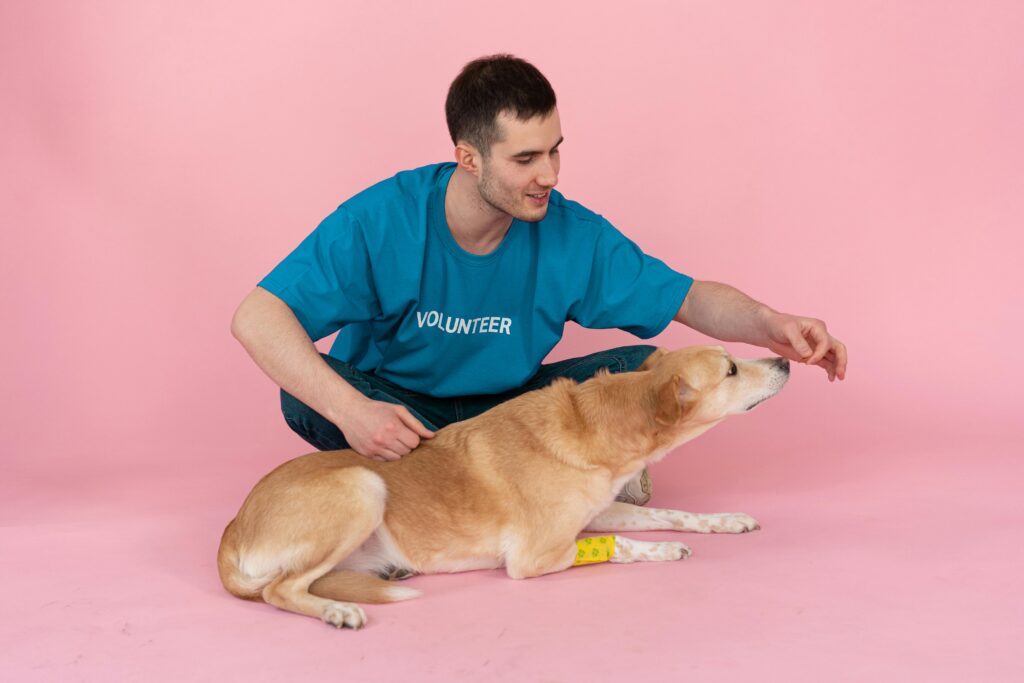Stop living a life of bribery.
Real dog training is teaching your dog Right vs Wrong… not a lifetime of unhealthy food handouts.
Do you want your dog to live longer? Do you want your dog to be healthier? Here’s the number one way you can achieve that: stop overfeeding them. I know you’re just following the instructions on the bag of dog food you’re using. But the reality is that the vast majority of dogs in the United States and the Western world are overweight.
They are eating too much processed food, and it often starts in puppyhood when everyone wants to spoil them with treats. You think you’re training your dog with those treats, but you’re not.
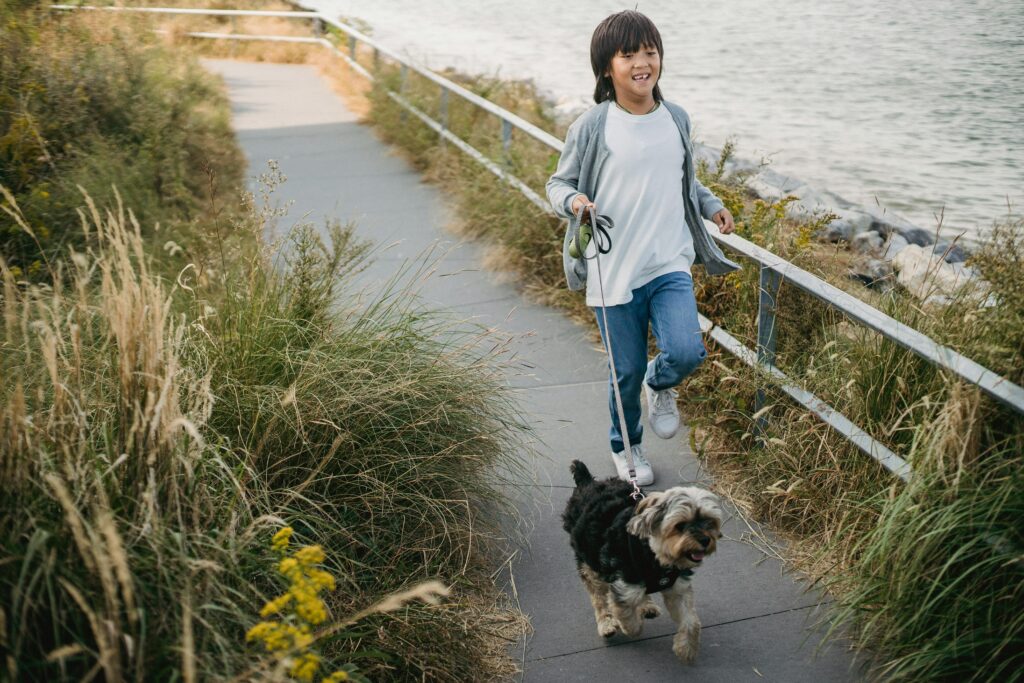
You’re not holding them accountable or teaching them what to do—or what not to do. Instead, they fall into a pattern of bribery, which contributes to their weight gain and unhealthy habits.
If you want more wonderful years with your dog, consider training as an opportunity to enrich your time together. It’s more than just a way to give your dog between-meal snacks. Focus on building a strong relationship through training. Put the treats away—better yet, throw them out.
Use a leash and practice simple pressure-and-release leash training. Your dog will be healthier, and you’ll both be happier.
As pet owners, we want the best for our dogs, and it’s easy to fall into the trap of overfeeding them as a way of showing love. However, overfeeding can have serious consequences for your dog’s health and behavior. Rather than using food as a reward, it’s essential to focus on training, structured feeding, and other forms of enrichment that will keep your dog healthy, happy, and well-behaved.
Why Overfeeding Is Harmful
While feeding your dog might seem like an act of kindness, overfeeding can have long-term negative effects. Obesity, a common consequence of overfeeding, is a major health concern for dogs. Being overweight puts unnecessary strain on a dog’s joints, heart, and internal organs. Just like in humans, excess weight can lead to chronic conditions such as:
- Diabetes – Overweight dogs are at higher risk for developing type 2 diabetes.
- Arthritis – Extra weight can aggravate joint problems and lead to painful arthritis.
- Heart Disease – Obesity can put extra strain on the heart, potentially leading to cardiovascular problems.
- Shortened Lifespan – Research shows that dogs who are overweight or obese tend to have shorter lifespans.
In addition to physical health issues, overfeeding can negatively affect your dog’s behavior. If your dog is constantly rewarded with food, they may begin to expect treats in exchange for good behavior. This can lead to:
- Begging – Your dog may constantly beg for food if they think it will earn them a treat.
- Food Aggression – Overfeeding and frequent treats can create possessive behaviors around food, which can lead to aggression.
- Lack of Motivation – When food rewards are overused, dogs may become less responsive to commands unless a treat is offered.
Why Do We Overfeed Our Dogs?
There are a variety of reasons why dog owners might unintentionally overfeed their pets:
- Emotional Attachment – Some owners may give food as a way to bond with their dogs, assuming that food is the best way to show affection.
- Inaccurate Portion Control – Not all dog owners measure their dog’s food correctly, leading to unintentional overfeeding.
- Lifestyle Factors – Pet owners who are busy or feel guilty about leaving their dog alone may give extra food or treats to make up for it.
- Dog Begging – Dogs are experts at using their big eyes and wagging tails to get what they want. It’s hard to say no to those adorable faces!
The Right Way to Feed Your Dog
Rather than relying on extra food to show your dog affection, it’s crucial to develop a structured feeding routine. Here are a few tips to help you keep your dog at a healthy weight:
1. Follow a Consistent Feeding Schedule
Dogs thrive on routine. Establish regular feeding times and stick to a consistent schedule. Follow the recommended portion sizes for your dog’s breed, size, and activity level. Your veterinarian can help you determine the ideal feeding plan based on your dog’s specific needs.
2. Measure Your Dog’s Food
It’s easy to overfeed your dog when you’re estimating portion sizes. Use a measuring cup or kitchen scale to ensure your dog is getting the right amount of food. This is especially important for those who free-feed their dogs (leaving food out all the time), as it can be difficult to monitor how much they’re eating.
3. Limit Treats and Snacks
Treats should make up no more than 10% of your dog’s daily caloric intake. Giving your dog too many treats can add extra calories, and the wrong kind of treats (such as those with high fat or sugar content) can lead to weight gain. Choose healthy treats and use them strategically, especially when training your dog.
4. Say No to Table Scraps
Many owners give their dogs food scraps from the dinner table, thinking it’s harmless. However, human food is often high in fat, salt, and sugar, which is unhealthy for dogs. It’s important to set boundaries and avoid feeding your dog from the table to prevent unwanted behaviors and weight gain.
5. Monitor Your Dog’s Weight and Adjust As Needed
Regular vet checkups are essential for maintaining your dog’s health. Make sure to check your dog’s weight at least once a month and adjust their food portions if needed, especially if their activity levels change. Your vet can help you determine whether your dog is overweight and what dietary changes are needed.
Training: A Healthier, More Effective Alternative to Overfeeding
Rather than relying on food to reward your dog, training and positive reinforcement are far more effective in building a strong relationship with your pet. By focusing on training, you can encourage good behavior, improve obedience, and prevent the behavioral problems that come with overfeeding.
Here are some ways to reward your dog without using food:
1. Use Praise and Affection
Verbal praise and affection are highly motivating for dogs. A simple “good boy!” or a gentle petting session can be just as rewarding as a treat.
2. Play and Physical Activity
Dogs love playtime! Incorporating play, such as fetch, tug-of-war, or a fun walk, as part of their reward system provides both mental and physical stimulation.
3. Train with Toys
Some dogs respond better to toys than food. Use their favorite toy as a reward during training to keep them engaged and excited.
4. Incorporate Clicker Training
Clicker training is a popular method of positive reinforcement that helps dogs associate a sound with good behavior. The click sound marks the correct action and can be followed by praise or a small treat. It’s an effective way to reinforce desired behaviors.
5. Spend Quality Time Together
Dogs are social animals, and they love spending time with their owners. Engaging in activities such as hiking, exploring new places, or simply snuggling together creates a strong bond without the need for excess food rewards.
Final Thoughts
Overfeeding your dog may seem like a way to show love, but it can have negative effects on their health and behavior. Instead of using food as a reward, focus on building a strong relationship through training, structured feeding routines, and positive reinforcement. This approach will ensure your dog remains healthy, happy, and well-behaved for years to come.
How to Effectively Give Your Dog a Flea Bath
Fleas are pesky, persistent, and can drive your furry friend absolutely bonkers. If your dog…
Deworming Your Dog: How Often Is Necessary for Optimal Health?
Deworming is the process of treating your dog to eliminate internal parasites, specifically intestinal worms….
Ivermectin for Dogs: Comprehensive Guide to Uses and Safety
Side Effects and Risks of Ivermectin in Dogs Common Side Effects Ivermectin is a safe…
Elbow Hygromas in Dogs: Causes, Treatment, and Home Remedies
Understanding Elbow Hygromas What is an Elbow Hygroma? Elbow hygromas in dogs are fluid-filled sacs…
Physical Therapy for Dogs
Physical Therapy for Dogs Physical therapy for dogs, also known as canine rehabilitation, is a…
Imodium for Dogs: Safe Usage Guidelines and Dosage Information
Recommended Dosage of Imodium for Dogs Proper Dosage Guidelines When it comes to giving your…
